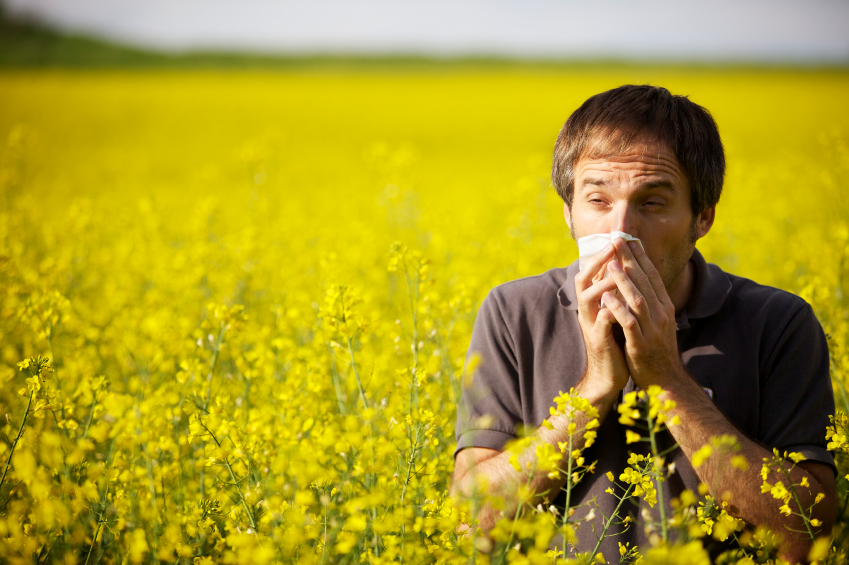Causes and risk factors
As the name suggest hay fever occurs as an allergic reaction on exposure to pollen dust. An allergy is an autoimmune reaction of the body. When an individual is exposed to a specific substance the immune system considers it a harmful substance for the body as a result the body stimulates the cells to secret the immunoglobulin’s to nullify the effect of the substance. The next time as soon as one comes in contact with even small quantity of that substance to which the person is sensitive the immunoglobulin’s are stimulated and they release histamines for the defense, this process gives rise to the signs and symptoms. In most of the cases it is seen hereditary. Suffering from asthma and eczema and smoking also increases the chances of hay fever.
Symptoms
The symptoms are usually mild and vary from person to person. Sneezing and stuffed or running of nose is the characteristic symptoms seen. The person complaints of continuous watery discharges from nose or blocking of nose occurs. Stuffing of nose can lead to headache. Watering of eyes along with redness is seen. Itching of ears, throat occurs. Disturbed sleep and in general fatigue and malaise occurs.
Diagnosis and Investigations:
Apart from the symptoms given by the patient, hay fever can be diagnosed with the help certain investigations. Allergen test and Elevated levels of immunoglobulin E is diagnostic of allergy.
Treatment
Hay fever can be very well tackled by medications. Antihistamine medications or corticosteroid spray are found to be effective. Nasal decongestants or eye drops can be advised. Allergen immunotherapy has found to be effective in relieving the symptoms.
Things which trigger the allergic attack should be avoided or certain measures should be adopted like covering the nose by handkerchief or using masks. In case of smokers who are allergic to pollen they should avoid smoking. Adoption of a healthy lifestyle which constitute of good exercise and a balanced diet is an essential measure to be implemented.
Other modes of treatment:
Certain other modes of treatment can also be helpful in coping up the symptom. Taking into consideration the symptoms in holistic way, homoeopathy can offer a good aid for the relief of the symptoms. The Ayurvedic system of medicine which uses herbs and synthetic derivates can also be beneficial in combating the complaints. Certain yoga exercises and pranayam can also be helpful in relieving the reoccurrence and increase the strength of lung functions.






























